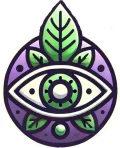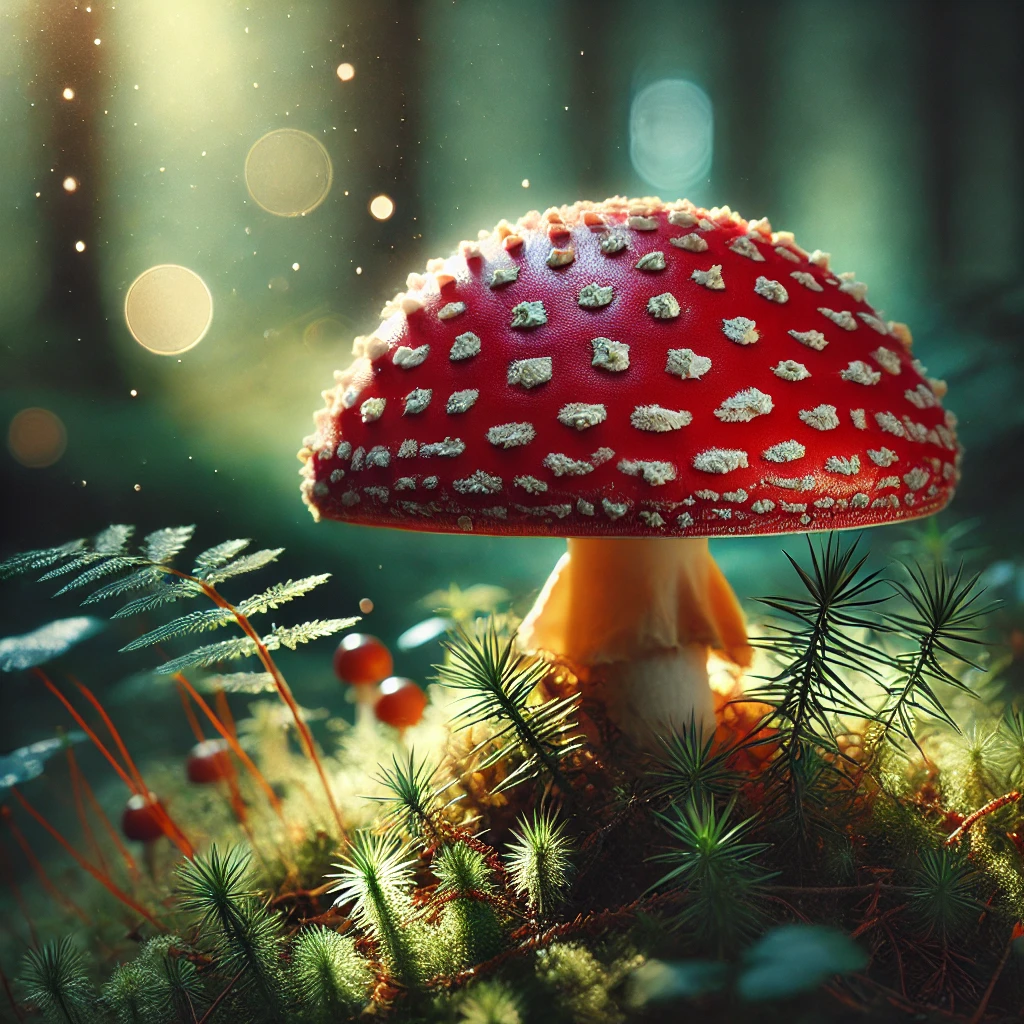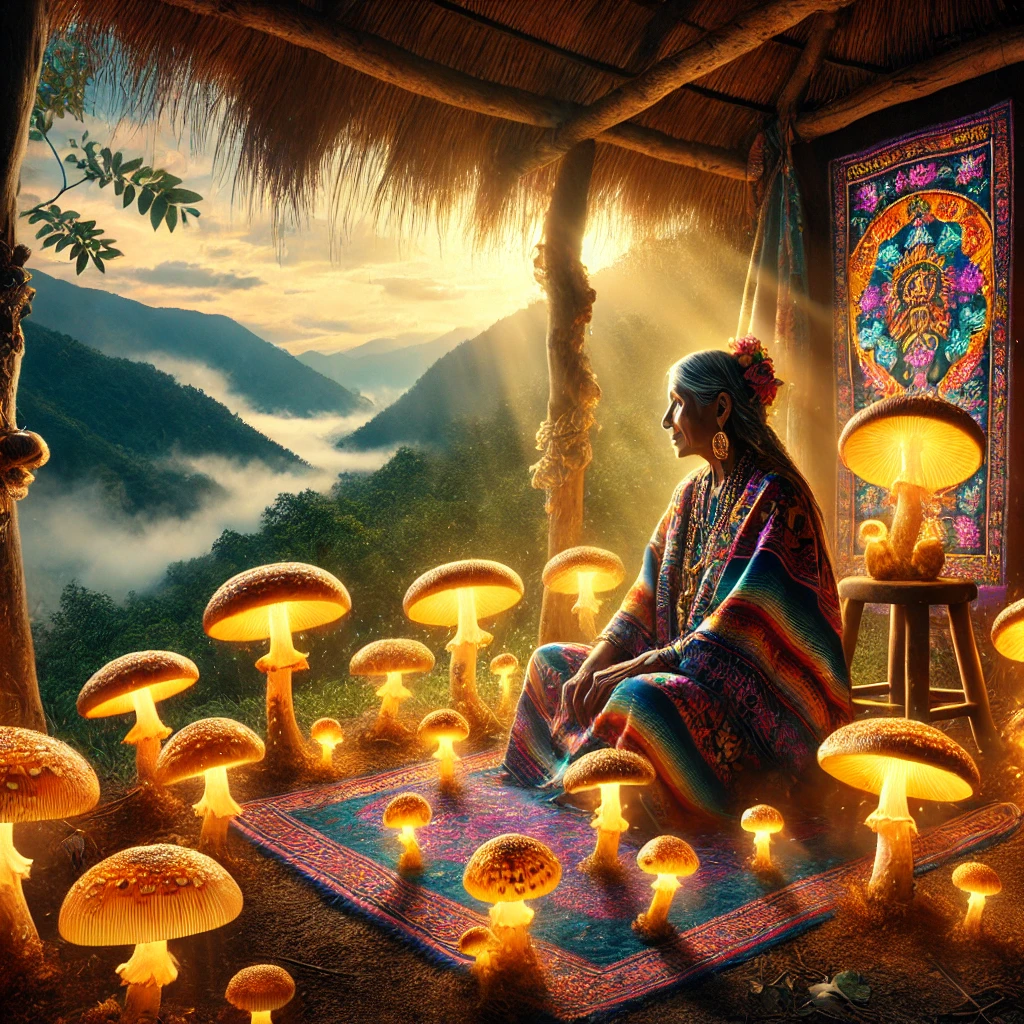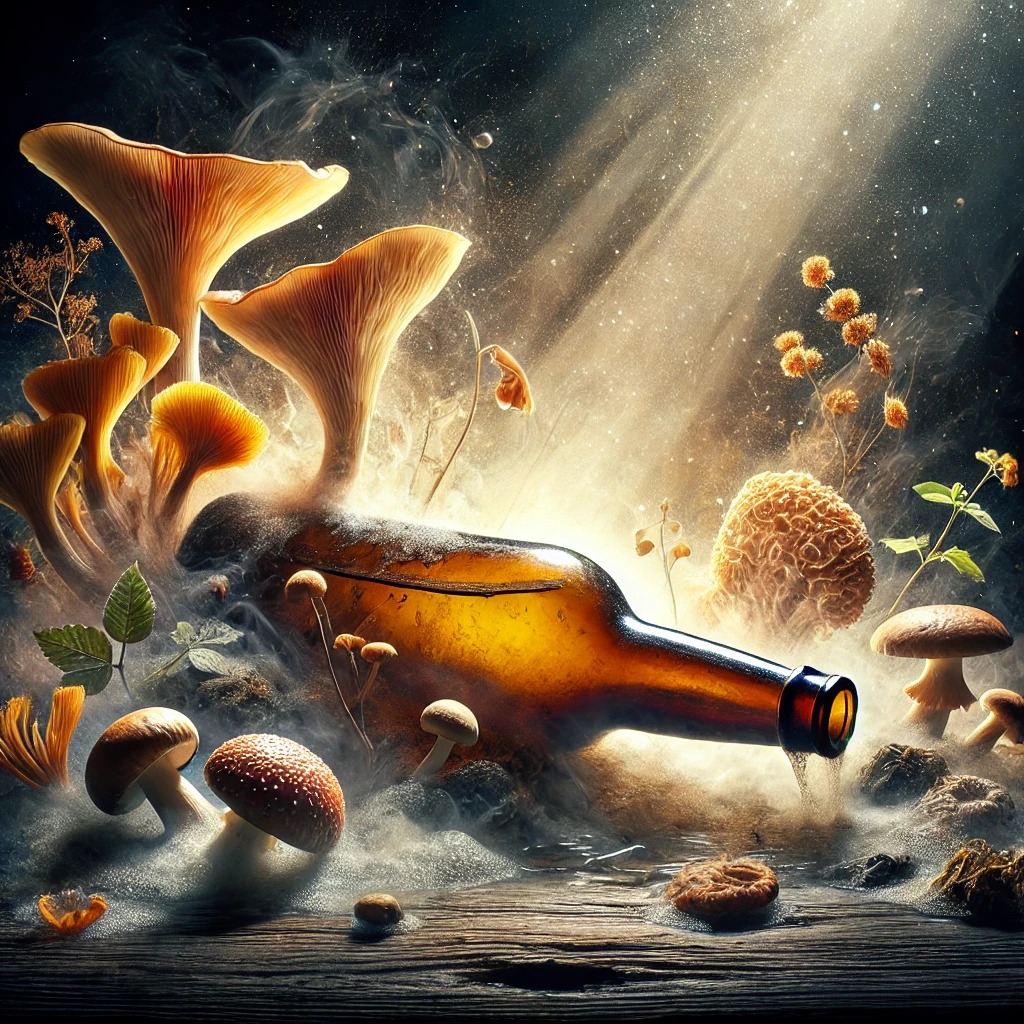From subculture to research subject: How psilocybin is changing medicine and society.
Magic mushrooms, also known as magic mushrooms or hallucinogenic mushrooms, have a long and fascinating history. From the ritual ceremonies of indigenous peoples to the counterculture of the 1960s, they have always accompanied human culture and consciousness. But after a period of stigmatization and prohibition, we are now experiencing a renaissance of psychedelics, with psilocybin, the active ingredient in magic mushrooms, at the forefront.
This blog article sheds light on the complex aspects of magic mushrooms in today’s society. We take a look at their history, their effects, current research and the potential, but also the risks associated with their consumption. Finally, we venture an outlook on the possible future of psychedelics and their role in medicine and society.
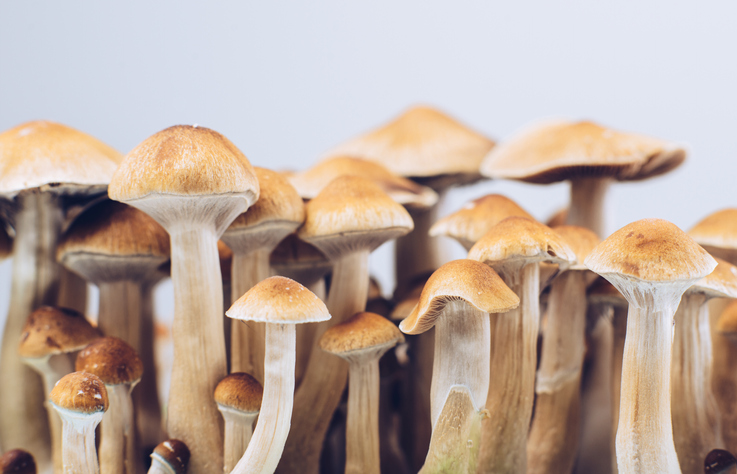
Magic mushrooms – Psylocybe Cubensis
Golden Teacher and B+ are probably the best known strains
A journey through time: the history of magic mushrooms
The use of magic mushrooms can be traced back thousands of years. Archaeological findings indicate that psilocybin-containing mushrooms were already used in religious ceremonies and shamanic rituals in prehistoric times. In Mesoamerica, the home of many psilocybin-containing mushroom species, they played a central role in the cultures of the Aztecs and Maya. The Spanish, who conquered Mexico in the 16th century, attempted to suppress the use of teonanácatl (flesh of the gods), but the traditions have persisted in some regions to this day.
In the western world, magic mushrooms were forgotten for a long time. It was not until the 1950s that they were rediscovered by the American banker and mycologist R. Gordon Wasson. Wasson traveled to Mexico, took part in a traditional mushroom ritual and published his experiences in Life Magazine in 1957. This article sparked widespread interest in magic mushrooms and contributed significantly to the emergence of the psychedelic movement of the 1960s.
However, the increasing popularity of psychedelics also led to a backlash. In the 1970s, psilocybin and other psychedelic substances were banned in most countries. Research came to a standstill and the magic mushrooms disappeared underground again.
It is in the nature of a hypothesis, once a man has conceived it, that it absorbs everything to nourish itself, and from the first moment of your conception it generally grows stronger through everything you see, hear or understand.”
Gordon Wasson

Psilocybin: Effects and potential
Psilocybin is a tryptamine alkaloid that is converted to psilocin in the body. Psilocin acts as an agonist at various serotonin receptors in the brain, particularly at the 5-HT2A receptor. This leads to altered perception, intensified emotions and altered thinking. Typical effects of a psilocybin trip are
- Visual hallucinations: Colors appear more intense, shapes change, patterns emerge.
- Changed perception of time: Time can stretch or shorten.
- Intensified emotions: Feelings are perceived more intensely, both positive and negative.
- Mystical experiences: Feelings of oneness with the universe, transcendence of the ego, deep spiritual insights.
- Changed thinking: New perspectives and thought patterns emerge, entrenched thought patterns can be broken up.
In recent years, research into psilocybin has picked up speed again. Studies show promising results in the treatment of various mental illnesses, such as:
- Depression: Psilocybin can lead to a rapid and lasting improvement in symptoms of treatment-resistant depression.
- Anxiety disorders: Psilocybin can reduce anxiety symptoms, especially in life-threatening conditions.
- Addictive disorders: Psilocybin can reduce dependence on nicotine and alcohol.
Psilocybin is also used in research into creativity, spirituality and consciousness. The studies indicate that psilocybin has the potential to bring about profound changes in thinking and behavior.
Set and setting: the key to a positive experience
The effect of psilocybin is highly dependent on the individual’s state of mind (set) and the environment (setting). A positive set includes a positive mood, clear intentions and confidence in the experience. A positive setting is characterized by a safe and comfortable environment, familiar people and experienced company.
The intake of magic mushrooms should therefore be well prepared and take place within a responsible framework. Information about the effects, dosage and possible risks is essential. An experienced guide, a “trip sitter”, can offer support in the event of difficulties.
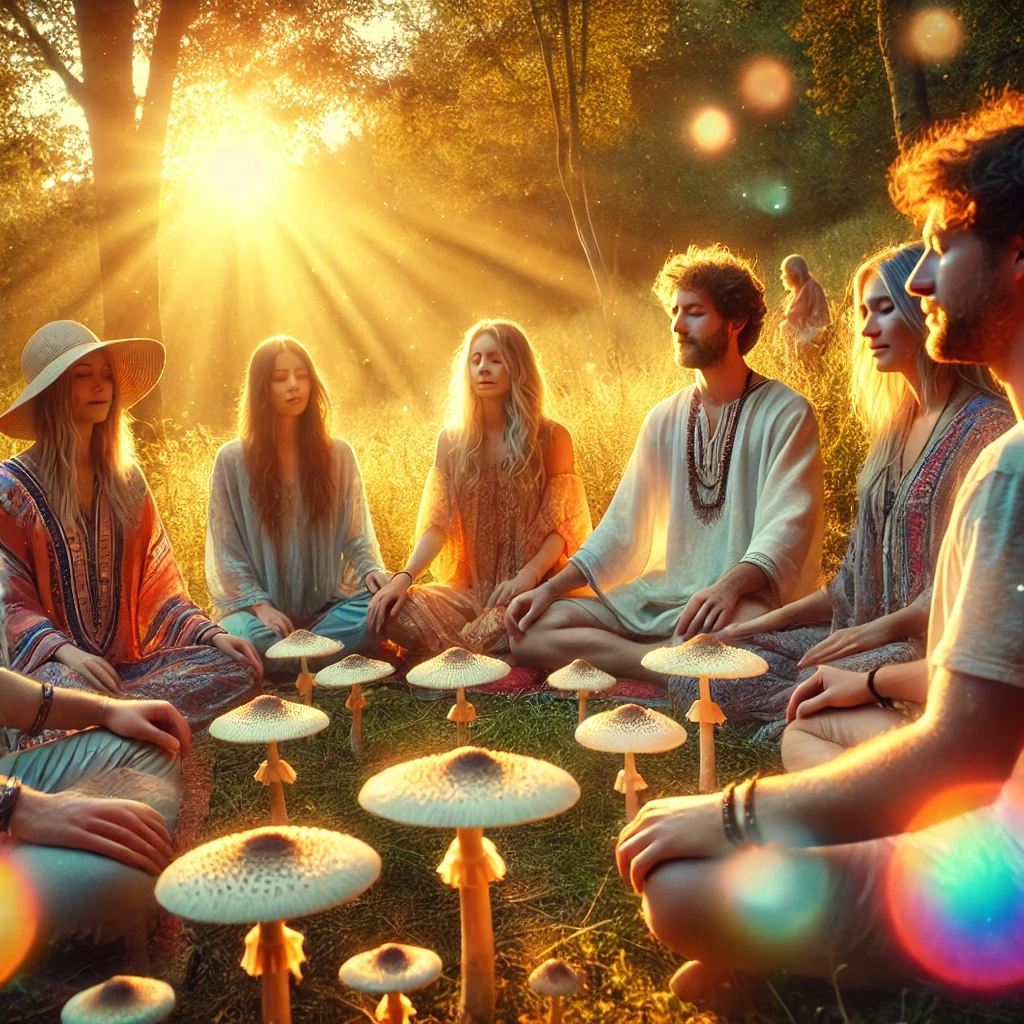
Magic mushrooms: aids for spirituality
Magic mushrooms and society: an outlook
Increasing research and the promising results of the studies have led to a change in the public perception of psilocybin. More and more people are recognizing the potential of this substance for medicine and society.
It is conceivable that psilocybin will be approved as a drug for the treatment of mental illnesses in the future. Research is continuing in order to better understand the mechanisms of action and optimize therapeutic applications.
In addition, magic mushrooms could also play a role in other areas. Their ability to stimulate creativity and open up new perspectives could be used in art, science and technology. They could also provide valuable support in spiritual practice and personal development.
The risks of consumption
Despite the great potential of psilocybin, it is important not to underestimate the risks of consumption. Magic mushrooms are a powerful psychoactive substance that can have undesirable and even dangerous effects. Possible side effects include:
- Bad trip: anxiety, panic, paranoia, confusion, negative thought spirals.
- Flashback: Re-experiencing parts of the trip after the effects have worn off.
- Psychoses: triggering or exacerbation of psychotic illnesses.
- Accidents: Injuries caused by irrational behavior while intoxicated.
The consumption of magic mushrooms is particularly risky for people with pre-existing mental illnesses, especially psychoses. The combination with other drugs, especially alcohol, can also lead to dangerous interactions.
Psychonaut.es: Your store for magic mushrooms and more
If you want to learn more about magic mushrooms or are interested in responsible consumption, visit our store Psychonaut.es. We offer a selection of high-quality products, information and resources related to psychedelics.
-
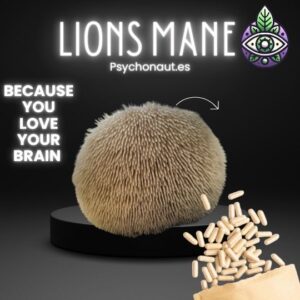 Hericium Lions Mane – 60 capsules28,90 €
Hericium Lions Mane – 60 capsules28,90 € -
Product on sale
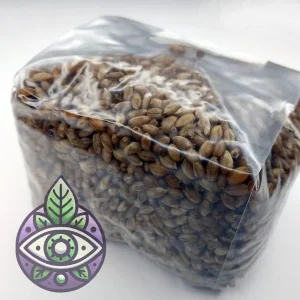 Sterile grain brood grain substrate – 500 g wheatOriginal price was: 13,49 €.9,99 €Current price is: 9,99 €.
Sterile grain brood grain substrate – 500 g wheatOriginal price was: 13,49 €.9,99 €Current price is: 9,99 €. -
Product on sale
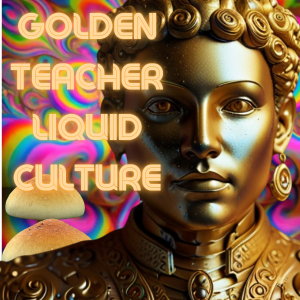 Golden Teacher 10ml Liquid cultureOriginal price was: 10,95 €.9,95 €Current price is: 9,95 €.
Golden Teacher 10ml Liquid cultureOriginal price was: 10,95 €.9,95 €Current price is: 9,95 €. -
Product on sale
 Golden teacher – Cubensis SporeprintOriginal price was: 12,95 €.11,00 €Current price is: 11,00 €.
Golden teacher – Cubensis SporeprintOriginal price was: 12,95 €.11,00 €Current price is: 11,00 €. -
Product on sale
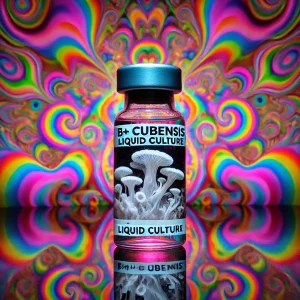 B+ 10ml Liquid cultureOriginal price was: 10,95 €.9,95 €Current price is: 9,95 €.
B+ 10ml Liquid cultureOriginal price was: 10,95 €.9,95 €Current price is: 9,95 €. -
Product on sale
 Golden teacher GrowkitOriginal price was: 24,95 €.18,90 €Current price is: 18,90 €.
Golden teacher GrowkitOriginal price was: 24,95 €.18,90 €Current price is: 18,90 €. -
Product on sale
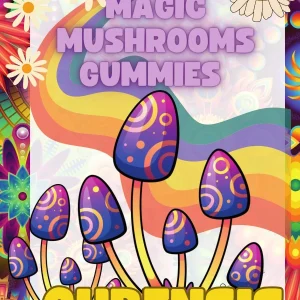 Magic Mushroom Gummies 50mg – Golden teacherOriginal price was: 14,99 €.12,49 €Current price is: 12,49 €.
Magic Mushroom Gummies 50mg – Golden teacherOriginal price was: 14,99 €.12,49 €Current price is: 12,49 €. -
Product on sale
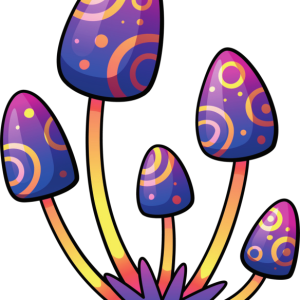 Magic Mushroom Gummies 50 mg – Golden teacherOriginal price was: 15,95 €.13,95 €Current price is: 13,95 €.
Magic Mushroom Gummies 50 mg – Golden teacherOriginal price was: 15,95 €.13,95 €Current price is: 13,95 €.
Disclaimer:
The consumption of magic mushrooms is illegal. This blog article is for information purposes only and does not constitute a recommendation for consumption.
